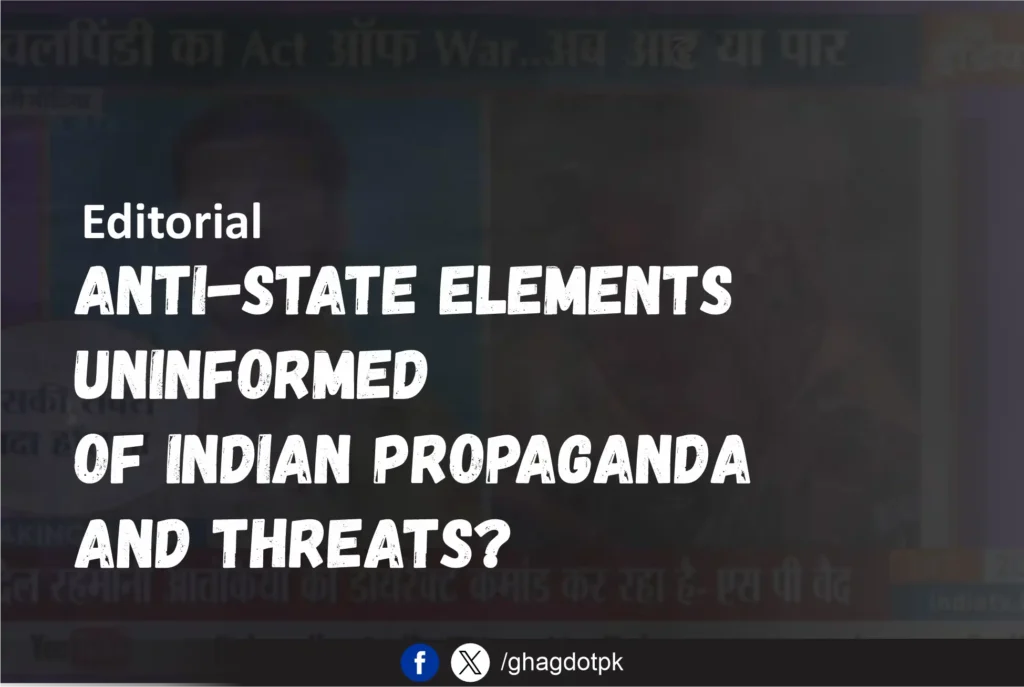It is now evident that certain internal anti-state forces and parties, as well as several regional powers and proxies, are on the verge of crossing a deadly line against Pakistan. However, it is astonishing that the country’s senior political parties and its leaders are either unaware of or purposely oblivious to these proxies’ plots and plans. The mainstream media is no exception, focussing solely on one party and its court decisions.
Several mainstream Indian networks have been airing a series of special broadcasts including anti-Pakistan propaganda in recent days. The propaganda war began following a few attacks on Indian forces in occupied Jammu & Kashmir. Over the last few days, various major Indian mainstream channels have stated that hundreds of Pakistan’s Special Services Group (SSG) members were directly involved in the attacks. Rather, India is preparing to invade Pakistan on six fronts, according to the “propaganda war” of the Indian media. According to the report, some of Pakistan’s anti-state YouTubers have adopted a policy of posting videos of spectacular yet “non-sense” comments made by mainstream Indian channels as a “promised witness” against their country. Although Pakistanis recognize the most “credible” analyst among these ladies and gentlemen as Pakistan’s serious circles and journalists, “Qayamat Masood.” During these broadcasts, the Indian media portrays SSG chief Major General Adil Rahmani as a hero, claiming that he is in command of this “operation” and that a lieutenant colonel is deploying hundreds of soldiers to occupied Jammu and Kashmir. In the middle of all this propaganda, no evidence is presented, and no analyst, like in Pakistan, feels compelled to query where India’s defense system, which claims to be a very modern and safe state, was resting while hundreds of commandos crossed their border. According to reports and analysis, the SSG headquarters and training centers are in Khyber Pakhtunkhwa. According to Indian media, Pakistan’s security forces have surrendered to the Taliban, however, despite the security concerns, Pakistan’s military conducted daily operations, and several terrorists were killed in operations in three districts of Khyber Pakhtunkhwa as recently as yesterday.
Despite all of this propaganda and threats of war, the concerned agencies are not even touching some people posing as analysts, aside from some political circles, who have been “spicing up” the Indian media by participating in anti-Pakistan activities and propaganda projects for years. The time has come to deal sternly with such groups while also acknowledging that the role of global and regional proxies in ongoing terrorism inside Pakistan is growing and that it is no longer a local problem, as some are attempting to depict. The need of the hour is for the state to not only stand up to ordinary terrorists with all its might, but also to focus on reining in the “elements” openly involved in digital terrorism because in the cycle of anti-state propaganda and ratings, some people will go to extreme extent, and that the interests of the country are not being taken into account under the guise of expression.






